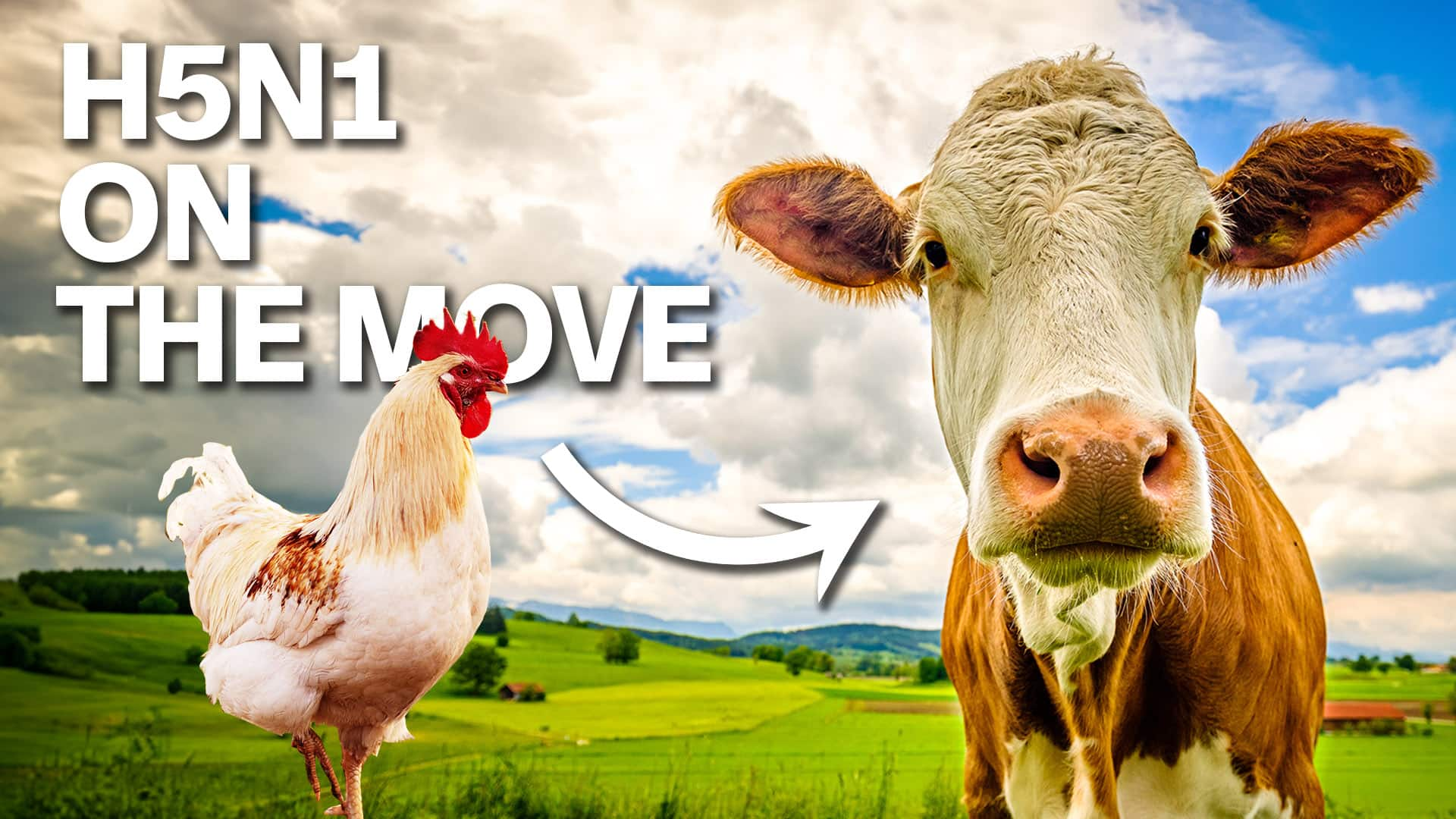Health
Only about half of Canadian kids aged 5-11 have been vaccinated; what's going on? – Halifax Examiner

Nurse Laura Bailey administers a COVID-19 vaccine dose to eight-year-old Jack Woodhead at the IWK COVID-19 vaccine clinic for children ages 5 to 11. Photo: Communications Nova Scotia
The Halifax Examiner is providing all COVID-19 coverage for free. Please help us continue this coverage by subscribing.
Concerns about the slow uptake of COVID-19 vaccine in the 5 to 11 age group is top of mind for a panel of Canadian experts hosting a live virtual town hall event later this week.
According to the latest data — and as outlined Friday in a statement from Canada’s Chief Public Health Officer — only 51% of children between the ages of 5 and 11 have had a first COVID-19 vaccine dose while 88% of the population 12 and older have had at least one dose. Of those 12 and older, 83% are fully vaccinated.
In Nova Scotia, the number is slightly higher than the national average, with 64% of 5 to 11 year olds having received a first dose of vaccine since becoming eligible in November. Of those between the ages of 12 to 14, 88% have received two doses.
“It is concerning that as of the beginning of January, fewer than half of Canadian children in that 5 to 11 age group had been vaccinated,” Christine Chambers, scientific director of both the CIHR Institute of Human Development, Child and Youth Health, and Solutions for Kids in Pain (SKIP), said in an interview.
“I’ve got kids in that (5 to 11) age group and I have them in the age group above, and it took only a week for that proportion of 12 to 17 year olds to get their first dose. So there’s definitely something going on here.”


Dalhousie University professor and pediatric pain researcher Christine Chambers. Photo: Contributed
Chambers, who’s also a professor in the departments of psychology and neuroscience as well as pediatrics at Dalhousie University, is one of the panelists for Thursday’s town hall. Health and science experts will answer questions from children, caregivers, and educators about vaccines and the ongoing COVID-19 pandemic.
“The first COVID-19 vaccines for kids aged 5-11 were approved in Canada in November, and yet uptake has been slow. Many parents and kids have made the choice to get the shot, but many more remain unvaccinated as a new variant sweeps across the country,” notes a description of the event.
“If you are on the fence, know that it’s absolutely normal to have questions about your children’s health. Tune into a live Q&A with physicians and researchers across the country and get the best information available.”
‘Why should I bother?’
The event is being hosted by ScienceUpFirst, a collective of independent scientists, researchers, health care experts and science communicators whose goal is to stop the spread of COVID-19 misinformation. One of the taglines for Thursday’s town hall is “together, we can move the needle.”
“Some of what I hear from parents is they know that COVID is relatively mild in kids and so they think, ‘Why should I bother,’” Chambers said.
“So I think some of the conversations that we’ll be having really talk about not only does this protect your child, but there’s interesting research coming out that’s showing the potential long term benefits of having the vaccine in terms of reducing the risk of having long COVID.”
Chambers said the lower vaccine uptake in that age cohort might also in part be due to the fact that few children between the ages of 5 and 11 enjoy getting needles. She said that’s why it’s important to discuss how parents can support their children to have positive vaccination experiences. Helping it hurt less makes it easier for parents to get their kids to those appointments.
Another possible reason for the slow uptake? Pandemic fatigue.
“Let’s face it, parents are tired. We’ve been at this for a long time. It’s been almost two years. We’re coming off of a very busy period for parents over the holidays, disrupted schooling, disrupted childcare. Parents have been scrambling to balance work and family,” Chambers said.
“I think for some families, sometimes it just comes down to logistics and being able to make it a priority. Those are some of the things that I’m hearing, but I think there are lots of reasons.”
‘This is really important for kids’
The expert panel is expected to discuss issues like possible vaccination risks, the data around things like myocarditis, concerns around long-term effects, and when toddlers might be safely vaccinated.
“It’s really a great opportunity to hear directly from experts who are at the cutting edge of science, who can be trusted around how you can make the best decisions for your children,” Chambers said.
“The key message people will be hearing is that the COVID-19 vaccines that are approved in Canada are safe, they’re effective, and they’re saving lives…This is really important for kids, it’s really important for Canadians, it’s something we can each do to help the health care system and to keep people safe.”
As a psychologist, Chambers will be sharing insights into pieces of the pandemic that are related to people’s emotions, thoughts and feelings and strategies that can help. She said while no one has enjoyed any stage of the pandemic, anxiety is especially high right now.
She intends to provide tips for parents about issues that include coping with the stress of getting children vaccinated in addition to how to talk to – and prepare them for – the appointment. She’ll also address the importance of routine and structure during these times of uncertainty, as well as the anxiety many parents and children are feeling about the return to in-person classes.
“The first step is really just validating their feelings, and everybody’s situation is different, so I think acknowledging that this is tough. And for some people, it’s even more complicated and harder,” Chambers said.
“One size does not fit all, and recognizing that there is more help available so if anxiety feels completely out of control for children or parents, that there are supports available.”
ScienceUpFirst also joined forces with organizations across Canada to declare January 27 National Kids and Vaccines Day.
Described as a collaboration between organizations including Children’s Healthcare Canada and the Sandbox Project, Jan. 27 has been dubbed National Kids and Vaccines Day and will “help move the needle (pun intended) and promote vaccine confidence to protect our largest unvaccinated cohort of Canadians.”
The free virtual town hall takes place on Thursday at 9pm AST. People can register for the Zoom event here.
Subscribe to the Halifax Examiner
The Halifax Examiner is an advertising-free, subscriber-supported news site. Your subscription makes this work possible.
#gallery-1
margin: auto;
#gallery-1 .gallery-item
float: left;
margin-top: 10px;
text-align: center;
width: 33%;
#gallery-1 img
border: 2px solid #cfcfcf;
#gallery-1 .gallery-caption
margin-left: 0;
/* see gallery_shortcode() in wp-includes/media.php */
We have many other subscription options available, or drop us a donation. Thanks!
<!–
–>
Health
New technology to advance women’s cancer care at Southlake


|
|
NEWS RELEASE
SOUTHLAKE REGIONAL HEALTH CENTRE
**************************
This Cancer Awareness Month, Southlake is adding advanced technologies to detect and treat breast cancer and other women’s cancers thanks to generous community donor support, most recently through the HERE is Where Cancer Meets its Match campaign. New cancer care technology, including new mammography machines, the MyoSure System and the MOLLI 2® System will make a measurable impact in diagnosing and treating women’s cancers in the communities Southlake serves.
Southlake is installing three new mammography machines to expand its breast cancer screening program to 1,500 more women each year. Two of these machines have new biopsy capabilities that will reduce the number of cancelled exams due to equipment failure, ensuring timely care for women. Women ages 40 to 49 years old will be able to self-refer for publicly funded mammograms through the Ontario Breast Screening Program starting this fall.
“Early detection is critical when treating breast cancer and other women’s cancers,” said Lorrie Reynolds, Director, Regional Cancer Program at Southlake. “We treat more than 1,700 breast cancer patients at Southlake every year. By adding advanced technology, like the new mammography machines, we’re ensuring women have the best experience at Southlake.”
Southlake is also introducing the MyoSure System, an innovative technology that can help detect female reproductive cancers. Damaged tissue in a woman’s uterus such as fibroids and polyps can now be removed in a precise, minimally invasive procedure that leaves the rest of the uterus intact. This will improve the overall patient experience by supporting faster recovery, reducing the risk of infection and giving more women the option to have children. An estimated 200 women per year will benefit from the MyoSure System.
The new mammography machines and the MyoSure System build on Southlake’s recent investment in the MOLLI 2® System, a made-in-Canada wire-free breast localization technology. This technology is considerably less invasive and more accurate when compared to wire-guided localization, resulting in a better patient experience and improved cosmetic outcomes. More than 200 women each year will benefit from this innovative medical device as they are treated for breast cancer at Southlake.
“As a clinician caring for women with cancer in our community, I’m incredibly proud of the work Southlake is doing to advance women’s health and improve patient experiences,” said Sara Temple, MD, Surgical Oncologist and Chief of Surgery at Southlake. “Women who visit Southlake can be confident that they are receiving leading edge care, close to home when they need it most.”
The World Health Organization anticipates a 77 per cent increase in cancer diagnoses by 2050. Southlake serves some of the fastest growing communities in Canada and anticipates that the number of patients requiring cancer care will grow. By investing in new technology, Southlake is ensuring that women in the communities it serves have access to leading edge cancer care. All of these investments were funded with support from community donors who generously gave to Southlake to support investments into women’s health at the hospital.
“The generosity of our donor community and the impact they have made for women receiving cancer diagnosis and treatment at Southlake is something we can all take great pride in,” said Jennifer Ritter, President and CEO of Southlake Foundation. “From our Women’s Health Initiative donors supporting new mammography machines, to the Ladies in Philanthropy for Southlake funding the MOLLI 2 System, to our long-standing partners The Edge Benefits and Pheasant Run Golf Club enabling the introduction of MyoSure System through their joint annual charity golf tournament, we are incredibly lucky to share a vision of access to exceptional care for everyone who depends on Southlake when they need us most. Thank you, to every donor who contributed to these important upgrades to care for women.”
Southlake Foundation’s HERE is Where Cancer Meets its Match campaign supports the Stronach Regional Cancer Centre at Southlake. For more information or to make a donation, visit: southlake.ca/HERE.





Health
Pasteurized milk includes remnants of H5N1 bird flu, U.S. officials say


|
|
The U.S. Food and Drug Administration says that samples of pasteurized milk have tested positive for remnants of the bird flu virus that has infected dairy cows.
The agency stressed that the material is inactivated and that the findings “do not represent actual virus that may be a risk to consumers.” Officials added that they’re continuing to study the issue.
“To date, we have seen nothing that would change our assessment that the commercial milk supply is safe,” the FDA said in a statement on Tuesday.
The announcement comes nearly a month after an avian influenza virus that has sickened millions of wild and commercial birds in recent years was detected in dairy cows in at least eight states. The Agriculture Department (USDA) says 33 herds have been affected to date.
FDA officials didn’t indicate how many samples they tested or where they were obtained. The agency has been evaluating milk during processing and from grocery stores, officials said. Results of additional tests are expected in “the next few days to weeks.”
WATCH | Bird flu spread in U.S. cows:
For the first time ever, avian influenza, or H5N1 bird flu, was detected in roughly a dozen dairy cow herds across the U.S. About That producer Lauren Bird explores why scientists and public health officials are concerned about the cross-species transmission and whether humans are now at higher risk.
The polymerase chain reaction (PCR) lab test the FDA used would have detected viral genetic material even after live virus was killed by pasteurization, or heat treatment, said Lee-Ann Jaykus, an emeritus food microbiologist and virologist at North Carolina State University
“There is no evidence to date that this is infectious virus, and the FDA is following up on that,” Jaykus said.
Officials with the FDA and the USDA had previously said milk from affected cattle did not enter the commercial supply. Milk from sick animals is supposed to be diverted and destroyed. Federal regulations require milk that enters interstate commerce to be pasteurized.
Tests for viable virus underway, agency says
Because the detection of the bird flu virus known as Type A H5N1 in dairy cattle is new and the situation is evolving, no studies on the effects of pasteurization on the virus have been completed, FDA officials said. But past research shows that pasteurization is “very likely” to inactivate heat-sensitive viruses like H5N1, the agency added.
The agency said it has been evaluating milk from affected animals, in the processing system and on the shelves. It said it is completing a large, representative national sample to understand the extent of the findings.
Matt Herrick, a spokesperson for the International Dairy Foods Association, said that time and temperature regulations for pasteurization ensure that the commercial U.S. milk supply is safe. Remnants of the virus “have zero impact on human health,” he wrote in an email.
Scientists confirmed the H5N1 virus in dairy cows in March after weeks of reports that cows in Texas were suffering from a mysterious malady. The cows were lethargic and saw a dramatic reduction in milk production. Although the H5N1 virus is lethal to commercial poultry, most infected cattle seem to recover within two weeks, experts said.
To date, two people in the U.S. have been infected with bird flu. A Texas dairy worker who was in close contact with an infected cow recently developed a mild eye infection and has recovered. In 2022, a prison inmate in a work program caught it while killing infected birds at a Colorado poultry farm. His only symptom was fatigue, and he recovered.





Health
Remnants of bird flu virus found in pasteurized milk, FDA says


|
|
The U.S. Food and Drug Administration said Tuesday that samples of pasteurized milk had tested positive for remnants of the bird flu virus that has infected dairy cows.
The agency stressed that the material is inactivated and that the findings “do not represent actual virus that may be a risk to consumers.” Officials added that they’re continuing to study the issue.





-



 Health16 hours ago
Health16 hours agoRemnants of bird flu virus found in pasteurized milk, FDA says
-
Art22 hours ago
Mayor's youth advisory council seeks submissions for art gala – SooToday
-



 Health20 hours ago
Health20 hours agoBird flu virus found in grocery milk as officials say supply still safe
-



 Investment20 hours ago
Investment20 hours agoTaxes should not wag the tail of the investment dog, but that’s what Trudeau wants
-
News21 hours ago
Peel police chief met Sri Lankan officer a court says ‘participated’ in torture – Global News
-
Art22 hours ago
An exhibition with a cause: Montreal's 'Art by the Water' celebrates 15 years – CityNews Montreal
-
Media16 hours ago
Vaughn Palmer: B.C. premier gives social media giants another chance
-
News13 hours ago
Amid concerns over 'collateral damage' Trudeau, Freeland defend capital gains tax change – CTV News




